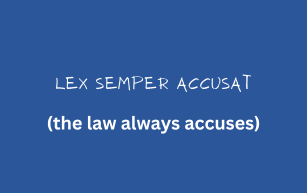Ten “Promising” Words? An Interchange (Part 2)
Co-missioners,
Today we send you the continuation of a discussion between Mike Hoy and Paul Jaster about Paul’s recent essay, “God Ten Promising Words.” As you may have seen last week, Mike sent a note about this to our editor, who passed it on to Paul. Paul responded to Mike.
Came a second and lengthier note from Mike, sent directly to Paul. You’ll find this below, along with a brief acknowledgment from Paul. To all of which our editor has added a few thoughts of his own.
Peace and Joy,
The Crossings Community
________________________________________________________________
Ten “Promising” Words? An Interchange between Michael Hoy and Paul Jaster
Continuing from last week (May 4):
Hoy’s Reply to Jaster—
Paul, thank you for your “twenty-seven theses” in response to my own desire to have a conversation with you about the theology of Law and Gospel—for that is all I intended to provoke for your consideration in my response to your essay.
Where we are in agreement is that we both not only want to applaud our Jewish brothers and sisters, but to stand up with them and be counted as those who support them—especially in these horribly hateful days of cultural and religious prejudice. So the point about “respect” is something I also accept, embrace, and applaud in this discussion. Any reference on my part to “word” (debar) vis-a-vis “commandment” (mitzvot) is only in regard to how Luther (interestingly, a Hebrew scholar himself!) traditionally referred to them. I have no problem affirming your point on this, to call them the “ten words” as they are referred to in the Hebrew Scriptures and translations; but THAT point is not the PRIMARY point of distinction about “words” I am lifting up.

Christ High Priest – Michael Damaskinos
https://commons.wikimedia.org/wiki
That primary distinction is about law and gospel, the word that holds us accountable over-against the word that is truly “promising.” And, for all I know, we might actually be in agreement about Law and Gospel, though I would want some further clarification about that and certainly have some serious questions to raise about the way you write about those words. After reading your reply, I did a search of your name on the Crossings website. I noticed your vast array of text studies, many of which stay on track with the D’s and P’s, where the cross of Christ (P4) answers our accountability under judgment (D3). There the distinction is preserved. Nonetheless, one of your more recent text studies (Epiphany 6A, 2020) was not as good on that distinguishing. Interestingly, I notice that this text study seems to be the basic outline for your recent essay. Unless I missed it, there is no mention of the cross of Christ—and why should there be, since the problem as you outlined it (the D3) didn’t seem to demand it? I certainly would not have started out my P4 with a reference to the very words we so often fail to keep, or falsely (legalistically) employ to justify ourselves (a concern which you have also noted), but with the Christ who steps in the breach for us on the cross for our all our failures and gives us, instead, his righteousness.
So I’m not going to respond to all twenty-seven of your points. That would be pedantic and would likely lead us down the path of becoming more argumentative than I think we need to be. It would certainly not be helpful for us as brothers in the Crossings Community. But I will lift up your following two points as points worth responding to. Indeed, they get to the CRUX of my concern and probably highlight where I see the problem in your argument most clearly. Here’s what you wrote:
-
- Call me crazy, but I consider even that word from God that “accuses us” promising. I see law and promise as two sides of the same coin. The Law tells us of our need for God’s promises in Christ. The Gospel tells us of the promising Christ we need, as opposed to Jesus as only a model or example.
-
- For reasons that will be discussed in a forthcoming article on Apology IV, I would prefer to translate Luther’s conclusion to the First Article of the Apostles’ Creed as “For all this I am bound to thank and praise, serve and obey God. This is most certainly true.” (SC II.2). As Forde and Nestingen point out in Free To Be, this is as opposed to groveling. Your use of the word “owe” sounds to me a bit like groveling. In my experience with children, the debt we cannot pay back is better addressed in the Second Article of the Apostles’ Creed.
Call you crazy? Surely not, but I might call you more Barthian than you realize (even if you haven’t read him) when you reduce the two words of God to one word (or as you put it, one coin with two sides), and thereby even call the accusatory word of the law “promising.” That’s the Barthian dilemma to which Bertram responded in his dissertation and life’s work, challenging Barth’s revelational positivism with the two words, the latter of which is grasped only by faith (never measured by the words of the disciples “increase our faith,” but sourced in Jesus the Christ, who makes our faith “great”—even as great as the fruit of a mustard seed). Barth would say something along the very same lines that you did in Point 17. The two words of God are reduced to one (look how far down we’ve come from ten words!), and where gospel and law are no longer distinguished. And, as I said, while there is value in Nestingen and Forde’s work (Point 18), they also tend in my humble estimation to dissolve that critical distinction of the two words of God. But the two words of God, law and gospel, are not (for our sake and for our salvation) the same thing. How have you engaged in a critical theological reading of their work as a theologian of the cross (your Point 2)?
To be honest, a lot of contemporary theology (in which I still find a lot of value) has often postulated that one-word-of-God “revelationism” (not necessarily following Barth, but Barthian-like) that Bertram critiqued in his second part of CRUX (the appendix in his A Time for Confessing). The Crossings Community has traditionally shied away from engaging in that kind of revelationism, seeking instead to hold up the “promising tradition” that many of us share even from our days at Seminex. In any event, all reading of theology requires us to “cross-examine” what the other is saying, for the sake of the gospel.
Luther and Melanchthon distinguished the two words of God, law and gospel, and making the point that these two words are never saying the same thing. The two words may both offer ways to find “blessing” or “righteousness,” but only the gospel of Christ can deliver it for us. Where Luther’s schüldig occurs in the Small and Large Catechisms, the Kolb/Wengert edition of the Book of Concord translates it as “owe.” You “would prefer to translate Luther’s conclusion to the First Article” of the Creed with the word “bound”—and, apparently, so did Tappert in his edition of the catechisms—but still implying our need to be set free from the judgment of the law (“we are in bondage to sin and cannot free ourselves,” as we confess). Either way, the issue is not about “groveling”—it’s confessing the truth that we have already failed in our culpability! Indeed, we are “guilty as charged”—not doing all the “thanking and praising, serving and obeying” for which we are schüldig! And yes, indeed, the Second Article does address this indebtedness/guilt/failure—not only for the (confirmation) kids but for all of us older kids. Here on the cross of Christ (P4), Jesus the Christ takes our debt to himself (our judgment of guilt and lack of righteousness—D3) and gives us the freedom to be! But that freedom to be is truly free—not re-legislating us to the ten words, but to find truly creative ways to live in the Spirit of Christ, well beyond the ten words!
I could go on, but I hope this helps express my concern in all of this, Paul. I thank you as my brother and for all that you are seeking to do, and hope that we have opportunity for further conversation and reflection—hopefully, face-to-face—on all of these matters.
Peace and Joy!
Mike
+ + +
Jaster’s Acknowledgement—
Well said!
I will address what I have to say about the cross of Christ in a piece I am writing regarding Mark.
Hang in there. I sense we are in agreement on many things.
Thanks so much for your letter,
Paul
+ + +
Editor’s Afterword—
With nods of “OK” from Mike and Paul, I add a couple of thoughts to their discussion—
1. Among the many essays I haven’t written is one I’d entitle “Two Cheers for the Law,” the idea being that some of us, attuned as we are to the Law’s accusatory sting, can undervalue its everyday usefulness, to say nothing of its nature as a gift from God. When was the last time any of us thought to thank God for it in our nightly prayers? But this we surely ought to do (where “surely ought” is another translation of Luther’s schüldig.) A day or two in places less law-abiding than the ones we inhabit—I, for one, have been there—would confirm this beyond doubt.
2. One might go so far—further than some of us are wont to do—and call the Law “gracious.” Here I think of a distinction Bob Bertram made between grace, small “g”, and Grace, capital “G.” Both are sheer gift. Both are good beyond describing. Yet the first of them leaves us with an obligation we can’t hope to satisfy, as in that First Article schüldig. (Indeed, lex semper accusat.) The other—the immeasurably Greater Grace of Christ-for-us with all that this entails—is by definition obligation-free.
3. As with “grace,” so too with “promise”? That’s what Paul’s initial article surprised me into thinking about. Until then my theological use of the p-word (so to speak) had tied it exclusively to the Gospel. So too, I suspect, with Mike and others I heard from. But might we also speak of promise, small “p” and Promise, capital “P”?
4. After all, there is something distinctly promising in a small “p” kind of way in hearing that my great-grandchildren won’t eke out a brief and dreadful existence in an altogether lawless world still packed with sinners. God is too good, too gracious (small “g”), to let that happen.
5. Of course it’s better by far to hear that those great-grandchildren are embraced already, before their birth, in the capital “P” Promise of Christ’s death for us all, and of the unfolding new age that he lives this very day to oversee. On them too God’s heart is set in Christ. Such is God’s capital “G” Grace.
6. I’d have to check with Paul to see if this conforms with what he wrote. But whether yes or no, I thank him for having sparked the thought.
7. I think it possible that people who are alive to the Gospel and have tasted its joy can thank God in retrospect for the implacable accusation that finally drove them into the arms of Christ. Looking back, they might even regard it in a rueful sort of way as a “promise” the Law delivered on. Here, perhaps, I demur gently with Mike.
8. I demur gently with Paul in his assertion (Point 11 of his reply to Mike) that the Ten Words are “ultimate” for our sake. After all, the Promise envisions a new creation of sin-free people who don’t need to be told how to glorify God or get along with each other. Where they’re concerned, commanding words of any kind or number are a relic of a forgotten past. Now they live solely in the Spirit of Christ, as Mike underscores in the final sentence of his penultimate paragraph above. The cosmos they fill with thanks and praise is, strictly speaking, lawless. Or so it strikes me when I listen to the Promise.
9. And here I must quit, leaving much unsaid that could be said. My thanks again to Paul and Mike for sparking the conversation.
—JEB
Thursday Theology: that the benefits of Christ be put to use
A publication of the Crossings Community

